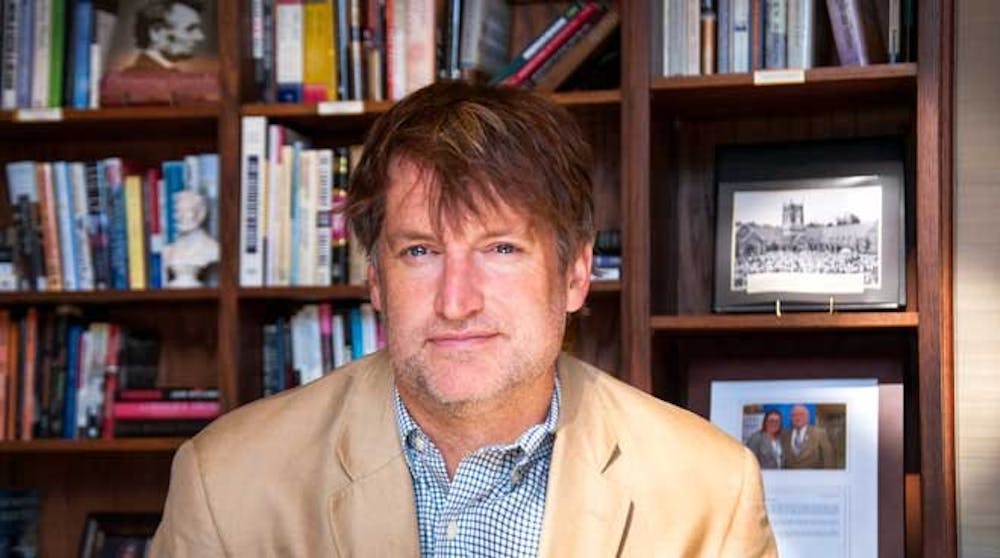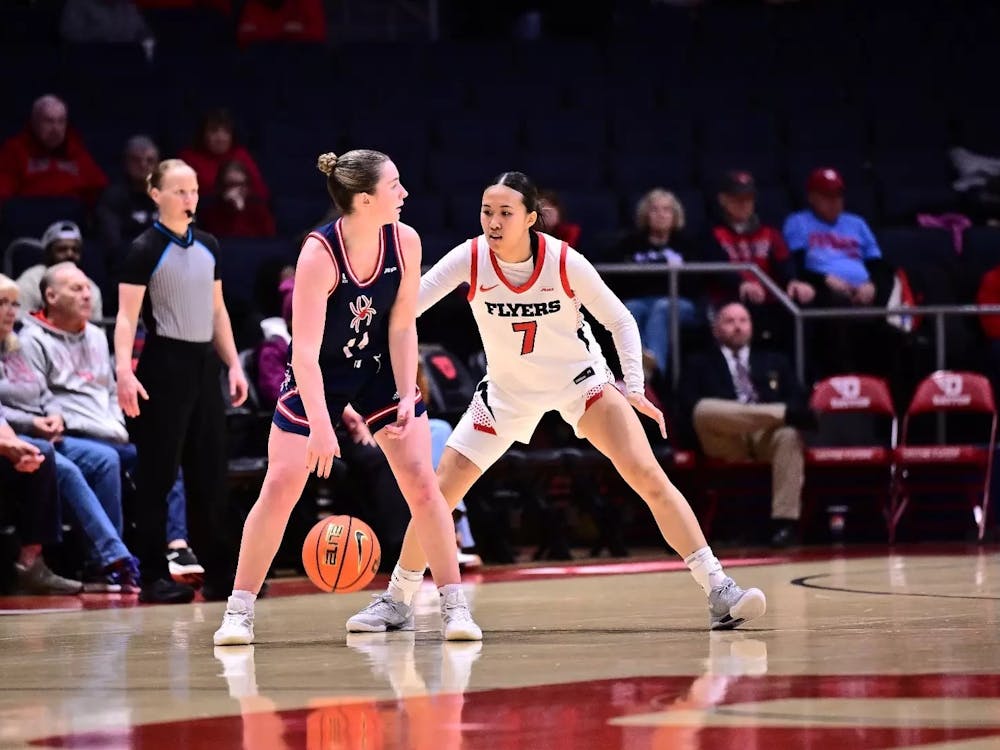While teaching courses such as Justice and Civil Society and Social Movements, Thad Williamson seeks new ways for his students to apply the ethical principles they discuss in class, so he challenges them to engage in the Richmond area and get hands-on experience in the realms of social action and change.
But when Williamson, a leadership studies and philosophy, politics, economics and law (PPEL) professor, encouraged his students to involve themselves, his students deflected the challenge at him.
"He came in with a cut nose and a black eye from an accident while playing on a homeless men's soccer team," said Kacie Lundy, a senior who took both of Williamson's classes mentioned above. "He cultivates not only an understanding of community and social issues, but a sense of responsibility for them as well, through organizing community service at organizations like Boaz and Ruth or schools like Henderson Middle School, tours of the Richmond jail, police ride-alongs and historic walking tours of Richmond."
When he came to the University of Richmond in 2005, Williamson had little knowledge of the Richmond area, but his involvement in the city steadily increased as he and his students continued to press one another. This summer, Mayor Dwight Jones named him a co-chairman of the Maggie L. Walker Initiative for Expanding Opportunity and Fighting Poverty in Richmond, along with Ellen Robertson, the city councilwoman for the sixth district.
"The most ambitious goal of the movement is coming up with a mutually agreeable process for city redevelopment going forward," Williamson said.
Within this redevelopment plan, which Williamson composed a final draft of in the summer of 2012, there were five major recommendations for the city in its future, which were announced this January: workforce development, targeted economic development, creating a regional transportation system, improving public education in the city and public housing redevelopment.
Williamson said there had been proposals to reinforce workforce and economic development, such as rewarding employers who directly hired the poor and implementing a public transportation system that would enable urban people to compete for jobs in a broader area. But he said he considered education most important among the recommendations.
Studies of Richmond's public schools show progress in elementary schools but a drastic decline in middle schools, Williamson said. State test statistics show an 81-percent pass rate for Richmond third graders, which is near the state average. By eighth grade, the rate was 32 percent, compared to a state average of 60 percent, he said.
"It is inherently difficult to achieve and sustain academic achievement in areas of poverty," Williamson said. "Students bring problems of emotion, trauma and even hunger to the classroom. Within the city, most kids cannot afford private education that rich families in the suburbs can. A strong, economically viable city needs a healthy middle class, which would require a movement to desegregate our schools on a regional basis."
Williamson said he and Amy Howard, executive director of the Center for Civic Engagement (CCE), were working on a book that would examine the last 25 years of the relationship between the evolution of politics in Richmond and these paramount problems: poverty and poor public education. He said that he and Howard would delve further into the region-wide pattern of income and racial segregation in Richmond through historical academic analysis and their first-person perspectives on involvement in anti-poverty movements.
For Williamson, firsthand experience was especially extensive. In addition to serving on several councils with Robertson and the mayor's chief of staff, including the establishment of a citizens' advisory board with at least half of its members living in poverty, Williamson wrote a dissertation and book in 2010 that focused on city-to-suburb social justice and how spatial distribution of communities embodies inequality, based in part on his life as a city resident.
"Being a resident of the city, a very diverse and impoverished place relative to suburbia, has enabled me to get to know many different types of people and their daily challenges," Williamson said. One family to which he had grown particularly close--a mother with a high school diploma and four children--lost its house in a fire and had to move out during the same week the mother had been laid off from her job, he said.
Enjoy what you're reading?
Signup for our newsletter
Williamson and other community members helped the family to try and find a new home to avoid becoming homeless or attending a shelter while the children needed to be in school and participating in their recreational activities, he said.
"Seeing their struggles despite her education, and the struggles of others I've met has shown me that anyone who lives in the city outside the first district is going to have a life impinged by the realities of poverty," Williamson said. "Poverty is not simply a matter of culture or laziness. It's about access to opportunities. You have to create them and prepare people to take them at the same time, which is a mixture of challenging them and also supporting them."
John Moeser, a senior fellow of the CCE who has collaborated with Williamson on service, poverty commissions and social justice issues, said that among the key forces driving Williamson were his deep commitment and concern, especially in seamlessly connecting learning in the classroom to community life outside it.
"But I think the biggest motivation is his faith," Moeser said. "Many don't know he has a degree in theology and has spoken at our church, Second Presbyterian. And he walks the walk. He is deeply committed to what he believes and does, and it is evident throughout his involvement in the university and the community."
Contact reporter Zak Kerr at zak.kerr@richmond.edu
Support independent student media
You can make a tax-deductible donation by clicking the button below, which takes you to our secure PayPal account. The page is set up to receive contributions in whatever amount you designate. We look forward to using the money we raise to further our mission of providing honest and accurate information to students, faculty, staff, alumni and others in the general public.
Donate Now



